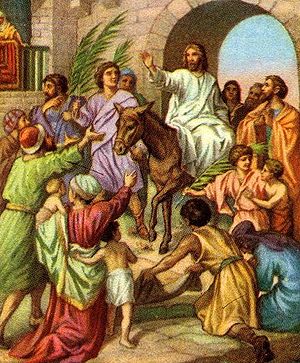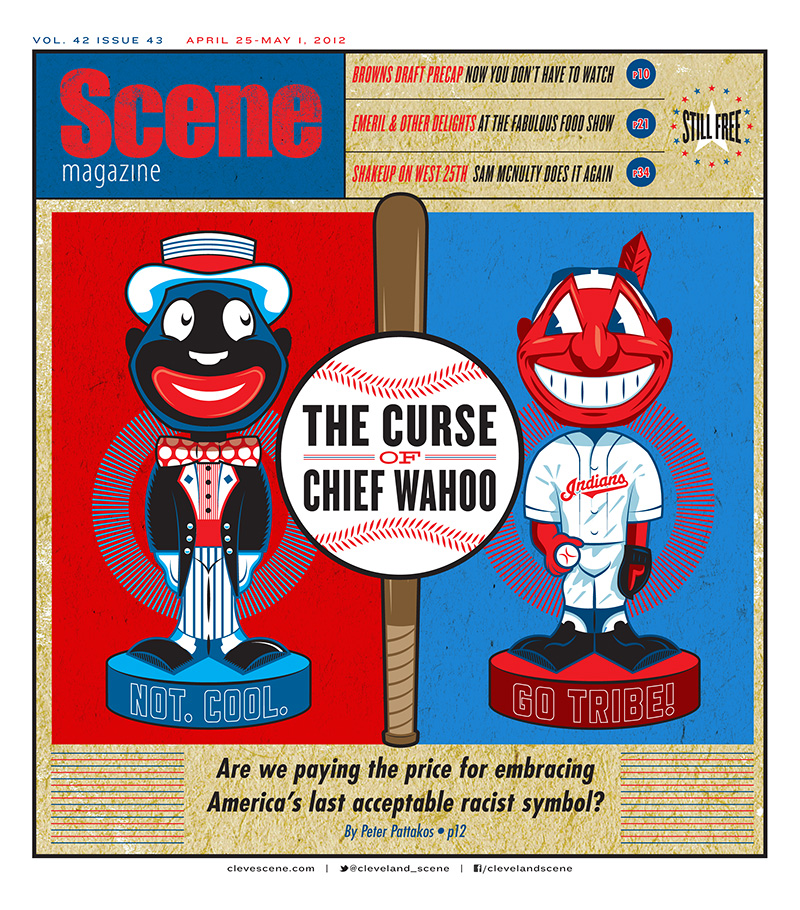Volume I including Acts I and II is available here. Act III picks up with Mike Holmgren having risen in Cleveland from the ashes of the historically incompetent Randy Lerner’s overreaction to a self-interested stunt on the part of one uniquely-positioned publicity hound, “Dawg Pound Mike” Randall:
ACT III: Cleveland Lays Down the Palms for The Big Show
Having been handed the keys to the kingdom by Lerner, Holmgren was received as a messiah in Cleveland. A Super Bowl appearance in Seattle and a Super Bowl ring earned 15 years before (with the help of each of one of the best GMs, quarterbacks, and defensive players in NFL history,* among others) were plenty for a Cleveland press starved for a brand name in Brownstown. Accounts of Holmgren’s first press conferences in Cleveland are uniformly laden with references to “The Big Show’s” charisma. He was a star. Not a single member of the mainstream media questioned Lerner’s decision. Questions about why Holmgren had worn out his welcome as GM and then head coach after ten seasons in Seattle weren’t so much as suggested, let alone discussed, even as Holmgren’s successor in Seattle, Jim Mora, was making news by publicly criticizing his Seahawks (Holmgren’s for the preceding decade) for their league-wide reputation for “softness.”
While some members of the press — mostly those with a special interest in avoiding further embarrassment by way their own incredibly early 2009 calls for Mangini’s head — practically begged for Holmgren to can the head coach, most took an even easier road, the one by which there was simply no right and wrong with respect to Mangini’s future. Whatever Holmgren decided would be fine. More incredibly, the “Fire Mangini” and “In Holmgren We Trust” camps were the only two camps represented in the local media, with one exception. ESPN Cleveland WKNR’s Je’Rod Cherry, former Patriots defensive back who won three Super Bowls with Mangini in New England, was the only mainstream voice to put forward an argument that keeping the Coach was the right thing to do (the closest anyone else came to crossing this line was Terry Pluto here and here).
Yet by the end of the 2009 season, the four-game win streak (the franchise’s longest in sixteen years) had made it much harder to argue that Mangini, after one season, wasn’t doing as well as anyone could have been expected to do in reversing the course of a franchise in a state of historic disrepair. When he arrived in Cleveland, Mangini cut 27 players (42% of the active roster), only one of whom had more than 3 starts NFL in 2010, and only two of whom were on active NFL rosters by 2011. Just weeks earlier, Steve Kelley wrote in the Seattle Times that “The Marshall Plan was easier to execute than the plan that’s needed to fix the Cleveland Browns.”
To get around the difficulty in explaining why one of “Holmgren’s guys” should be expected to be better than a coach already in place who was making discernible progress at an exceedingly difficult job, many suggested that “philosophical differences” between Holmgren and Mangini offered justification for firing the coach.
The idea of irreconcilable philosophical differences between Holmgren and Mangini raised difficult questions as well; including about why one man’s philosophy was necessarily superior to the other’s, especially in Cleveland, and most interestingly, why experts in distinct useful philosophies wouldn’t benefit from working together at the ever-evolving philosophizing that success in the NFL requires. Holmgren addressed these concerns in a 1/5/10 press conference by expressly rejecting the notion of mutually exclusive football philosophies:
“All I care about is for organization to win . . . If you play 3-4 and I’m a four-man line guy or if you run the spread and I’m a west coast guy, I don’t care. I always thought it was a little funny . . . [“West coast offense”] was a term, with all due respect, I thought it was a lazy term you guys use sometimes. I took at what I learned. I go wherever I go and I’m doing my thing adding this or that. . . Unless you’re running the Wildcat you see a lot of similarities in offenses. . . . I wouldn’t get too bogged down in that.”
Two days later, on January 7, Holmgren announced that Mangini would return as head coach of the Browns for the 2010 season. On January 11, Holmgren hired Eagles GM Tom Heckert to fill the same role in Cleveland, and announced at a press conference one day later that the three were “in it for the long haul.”
“It was my charge by our owner to find the best people I can find for these positions,” Holmgren said, “and then define their roles and let’s go. I believe in that. I just believe they know they’re going to get this job done. I don’t think this is business as usual. Take me out of the equation. We will not continue to have these kind of press conferences, I don’t believe. We’re all in it for the long haul. I’m gonna make sure they all play nicely with one another. That’s my job. But I believe in them.”
Mangini was optimistic as well:
“To be able to work with [Holmgren] and learn from him and just be able to spend time sharing ideas and all those things. It’s a unique situation for any coach and any head coach. . . . I think things are very bright for us. I think this is a real fantastic situation for me personally and for us organizationally. It’s unique. And I’m happy to be part of it.”
But a dimmer view held that Holmgren had given Mangini just enough rope with which to hang himself. Folks who saw 2010 Mangini as Dead Coach Walking from the start took literally the limiting clause in Holmgren’s statement that “Mangini will return as Browns head coach in 2010,” seeing Holmgren’s decision as little more than his taking advantage of a no-lose situation. With no quarterback in sight, and critical holes at every other position group, the Browns were at best a year away from serious playoff contention by any reasonable projection.
On the eve of 2010 training camp, Tony Grossi penned a 1,400-word column on “Five Key Storylines as the Browns open [camp]” Three of Grossi’s five key storylines directly implicated Mangini’s job security, including one directly questioning “Mangini’s future,” as well as narratives relating to the possibility of Holmgren returning to coaching, and potential friction between Mangini and Heckert. The name “Cribbs” didn’t appear in the column even once. Nor did the name of a single defensive player.
———-
We’ll pick up with Act IV later this week (or maybe Monday).
UPDATE: Or maybe never. This from Clark Judge of CBS and our season preview for the 2012 Browns will do well enough for Act IV.
Per Judge:
Mangini did what he was supposed to do, which was to lay a foundation for the future and return the Browns to respectability. I don’t care that they were 5-11 this season. I care that he took a team that didn’t have an abundance of talent but did have an abundance of injuries, as well as the NFL’s toughest schedule, and made it a factor.
I’m serious. The Browns were the last team to beat New England. They clobbered defending Super Bowl champion New Orleans in New Orleans. They beat defending AFC North champion Cincinnati, ending a streak of eight straight division wins. They should have beaten Tampa Bay and the New York Jets. They could have beaten Kansas City and Baltimore and Atlanta and Jacksonville.
I know they didn’t. They also didn’t have the players or the talent those clubs did, with Mangini forced to play half the season with his third-string quarterback, rookie Colt McCoy, and without defensive captains Scott Fujita and Robaire Smith.
So injuries happen. They happened in all the wrong places for Cleveland, and they doomed the head coach. Look, I don’t know that Mangini would’ve made it had he beaten Buffalo and Cincinnati or not gotten hammered by Pittsburgh at home in the season finale. But I do know that he didn’t have a chance once he couldn’t steer clear of those defeats.
That’s supposed to be OK because that’s life in the NFL. But it shouldn’t be OK for Mangini because he did what he was supposed to do — put the Cleveland Browns back on the map. Yes, you would have liked him to win more, but he made the Browns something they were not, which was relevant — and if you don’t believe me, ask the Patriots.
And the Final Act: “Where to for playoff tickets? Mike Holmgren out as Browns President.”
———-
*Ron Wolf, Brett Favre, Reggie White.




